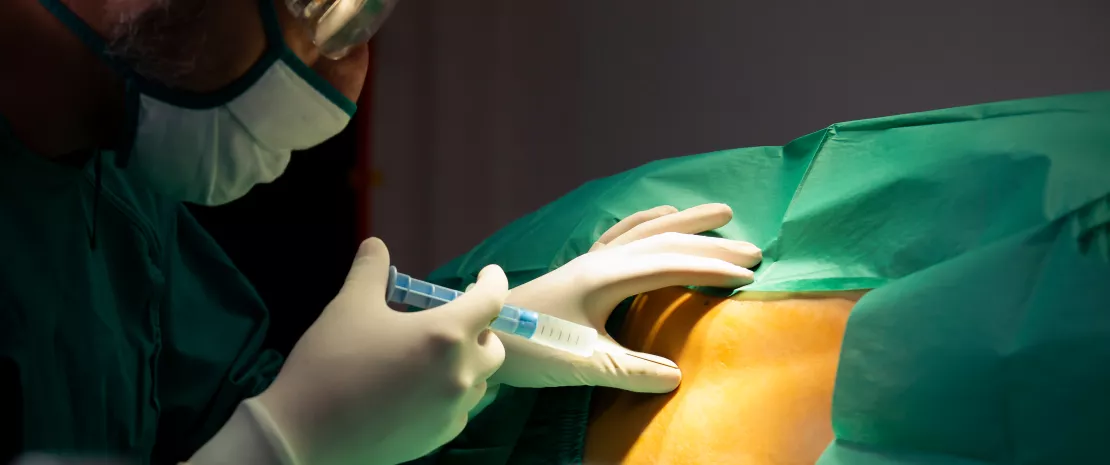Antibiotics and cesarean delivery: how do they affect the newborn microbiota?
Before the incision and not after cord clamping: what is the current recommended timing for prophylactic antibiotic administration in women during cesarean section? And could it even worsen the disruptions to the newborn’s gut microbiota already associated with this mode of delivery? The results of a study published in Gut1 offer some reassurance.
Lay public section
Find here your dedicated section
Sources
This article is based on scientific information

About this article
Antibiotic prophylaxis reduces the risk of serious infection in women during delivery by cesarean section by 60–70%2. Administration before the incision and not after cord clamping can also reduce the incidence of endometritis and global maternal infectious morbidity3. This approach is now therefore widely recommended, but nevertheless exposes the child to antibiotics before birth, with potential repercussions for his or her health and newly-formed microbiota. Dutch researchers wanted to find out whether it further altered the bacterial colonization of children born by cesarean section.
Their randomized controlled study included 40 women who gave birth by cesarean section and received antibiotic prophylaxis (cefuroxime 1500 mg), half 30 minutes prior to incision and the other half after cord clamping, and 23 women who gave birth by vaginal delivery as a control group. The gut microbiota in all infants was analyzed 1, 7, and 28 days after birth and at the age of 3 years by 16S RNA and shotgun metagenomic sequencing.
Dysbiosis in the first month following cesarean birth
Like many others before them, the researchers observed major differences in intestinal flora during the first month of life between the children born by cesarean and those born by vaginal delivery. They recorded a lower Shannon index (relative richness and abundance of species) with a reduction in bacteria from the Bacteroides and Bifidobacterium genera, and an increase in the Proteobacteria phylum, especially Firmicutes. However, these differences resolved by the age of 3 years.
Hailed as one of the greatest medical advances of the 20th century, antibiotics have saved millions of lives. But they also have an impact on our microbiota by inducing a dysbiosis. Let’s take a look at this ambivalence role:
The ambivalent role of antibiotics
No effects of antibiotic administration prior to incision
The main finding of this study was the absence of any significant difference in composition of the gut microbiota in terms of bacterial phyla or genera between the two groups of children born by cesarean section, at any point between 1 day and 3 years. Although it included only a small group of women, this study suggests that antibiotic prophylaxis prior to incision does not cause any additional disruptions to the intestinal microbiota of children born by cesarean section.
What is the World AMR Awareness Week?
Each year since 2015, the WHO organizes the World AMR Awareness Week (WAAW), which aims to increase awareness of global antimicrobial resistance.
Held on 18-24 November, this campaign encourages the general public, healthcare professionals and decision-makers to use antimicrobials carefully to prevent the further emergence of antimicrobial resistance.





